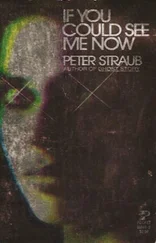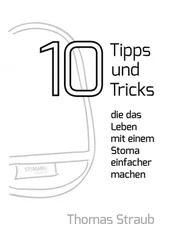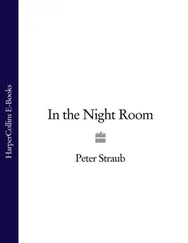
This novel is entirely a work of fiction.
The names, characters and incidents portrayed in it are
the work of the author’s imagination. Any resemblance to
actual persons, living or dead, events or localities is
entirely coincidental.
HarperCollins Publishers 1 London Bridge Street London SE1 9GF www.harpercollins.co.uk
First published in Great Britain by
HarperCollins Publishers 2000
First published in the USA by
Random House, Inc. 1999
Copyright © Peter Straub 1999
The Author asserts the moral right to
be identified as the author of this work
All rights reserved under International and Pan-American Copyright Conventions. By payment of the required fees, you have been granted the nonexclusive, nontransferable right to access and read the text of this e-book on-screen. No part of this text may be reproduced, transmitted, downloaded, decompiled, reverse engineered, or stored in or introduced into any information storage and retrieval system, in any form or by any means, whether electronic or mechanical, now known or hereinafter invented, without the express written permission of HarperCollins e-books.
HarperCollins Publishers has made every reasonable effort to ensure that any picture content and written content in this ebook has been included or removed in accordance with the contractual and technological constraints in operation at the time of publication.
Source ISBN: 9780002261425
Ebook Edition © OCTOBER 2002 ISBN: 9780007387977
Version: 2016-08-10
For my brothers, John and Gordon Straub
I could not weigh myself – Myself –
My size felt small – to me – I read your Chapter in the Atlantic – and experienced honor for you – I was sure you would not reject a confiding question –
Is this – Sir – what you asked me to tell you?
E—Dickinson
Emily Dickinson,
letter to Thomas Wentworth Higginson,
April 25, 1862
Cover
Title Page
Copyright
Dedication
Epigraph
1 How I Came Home, and Why
1
2 Mr X
3
4
5
6
7
8 Mr X
9
10
11
12
13 Mr X
14 Mr X
15 Mr X
2 How I Learned About River-Bottom
16
17
18
19
20
21
22
23
24
25
26 Mr X
27
28
29
3 How I Nearly Was Killed
30
31
32
33
34
35
36
37
38
39 Mr X
40 Mr X
4 How I Found My Shadow at Last and What it Did
41
42
43
44
45
46
47
48
49
50
51
52
53
54 Mr X
55
56
57
58
59
60
61
62
63
64
65
66
67
68
69
70
71
72
5 How I Learned to Eat Time
73
74
75
76
77
78
79
80
81 Mr X
82 Mr X
83
84
85
86
87
88
89
90
91
92
93
94
95
96
97
98
99
100
101
102
103
104
105
106
107
108
109
6 How I Spent My Birthday
110
111
112
113
114
115 Mr X
116
117
118
119
120
121
122
123
124
125
126
127
128
129
130
131
132
133
134
135
136
Keep Reading
Author’s Note
About the Author
Praise
Also by the Author
About the Publisher
1 How I Came Home, and Why
Stupid me – I fell right into the old pattern and spent a week pretending I was a moving target. All along, a part of me knew that I was hitching toward southern Illinois because my mother was passing. When your mother’s checking out, you get yourself back home.
She had been living in East Cicero with two elderly brothers above their club, the Panorama. On weekends she sang two nightly sets with the house trio. She was doing what she had always done, living without worrying about consequences, which tends to make the consequences come harder and faster than they do for other people. When she could no longer ignore her sense of fatality, my mother kissed the old brothers goodbye and went back to the only place I’d be able to find her.
Star had been eighteen when I was born, a generous, large-souled girl with no more notion of a settled life than a one-eyed cat, and after I turned four I bounced back and forth between Edgerton and a parade of foster homes. My mother was one of those people who are artists without a specific art. She apprenticed herself sequentially and many times over to painting, writing, pottery, and other crafts as well as to the men she thought embodied these skills. She cared least about the one thing she was best at, so when she stood up and sang she communicated a laid-back, good-humored ease her audiences found charming. Until the last few years of her life she had a soft, melting prettiness that was girlish and knowing, feline and earthy, all at once.
I lived with six different couples in four different towns, but it wasn’t as bad as it sounds. The best of my six couples, Phil and Laura Grant, the Ozzie and Harriet of Naperville, Illinois, were almost saintly in their straightforward goodness. One other couple would have given them a run for their money if they hadn’t taken in so many kids they wore themselves out, and two others were nice enough, in a this-is-our-house-and-these-are-the-rules way.
Before I went to Naperville, now and then I did go back to Cherry Street, where the Dunstans lived in their various old houses. Aunt Nettie and Uncle Clark took me in as though I were an extra piece of luggage Star had brought along. For a month, maybe six weeks, I shared a room with my mother, holding my breath and waiting for the next earthquake. After I moved in with the Grants, this pattern changed, and Star visited me in Naperville. She and I had come to an agreement: one of those deep agreements people don’t need words to strike.
The core of our agreement, around which everything else wrapped itself, was that my mother loved me and I loved her. But no matter how much she loved me, Star didn’t have it in her to stay in one place longer than a year or two. She was my mother, but she couldn’t be a mother. Which meant that she couldn’t help me deal with the besetting problem that frightened, distressed, or angered the foster parents I had before the Grants. The Grants accompanied me on a procession through doctors’ offices, radiology departments, blood tests, urine tests, brain tests, I can’t even remember them all.
Boiled down to essentials, it comes out this way: even though Star loved me, she could not care for me as well as the Grants could. On those days when Star came to Naperville, we put our arms around each other and we cried, but we both knew the deal. She usually showed up just after Christmas and almost always right at the start of summer, after I got out of school. But she never came on my birthdays, and she never sent me anything more than a card. Birthdays were when my problem came down on me, and my problem made her feel so rotten she didn’t want to think about it.
I think I always understood this, but it didn’t make conscious sense, a sense I could use , until two days after my fifteenth birthday. I came home from school to find waiting on the hall table an envelope addressed in my mother’s back-slanted handwriting. It had been mailed from Peoria on my birthday, June 25. I took the envelope into my room, dropped it on my desk, put Gene Ammons’s Groove Blues on the turntable, and, once the music began flowing into the air, opened the envelope and looked at the card my mother had sent me.
Читать дальше













